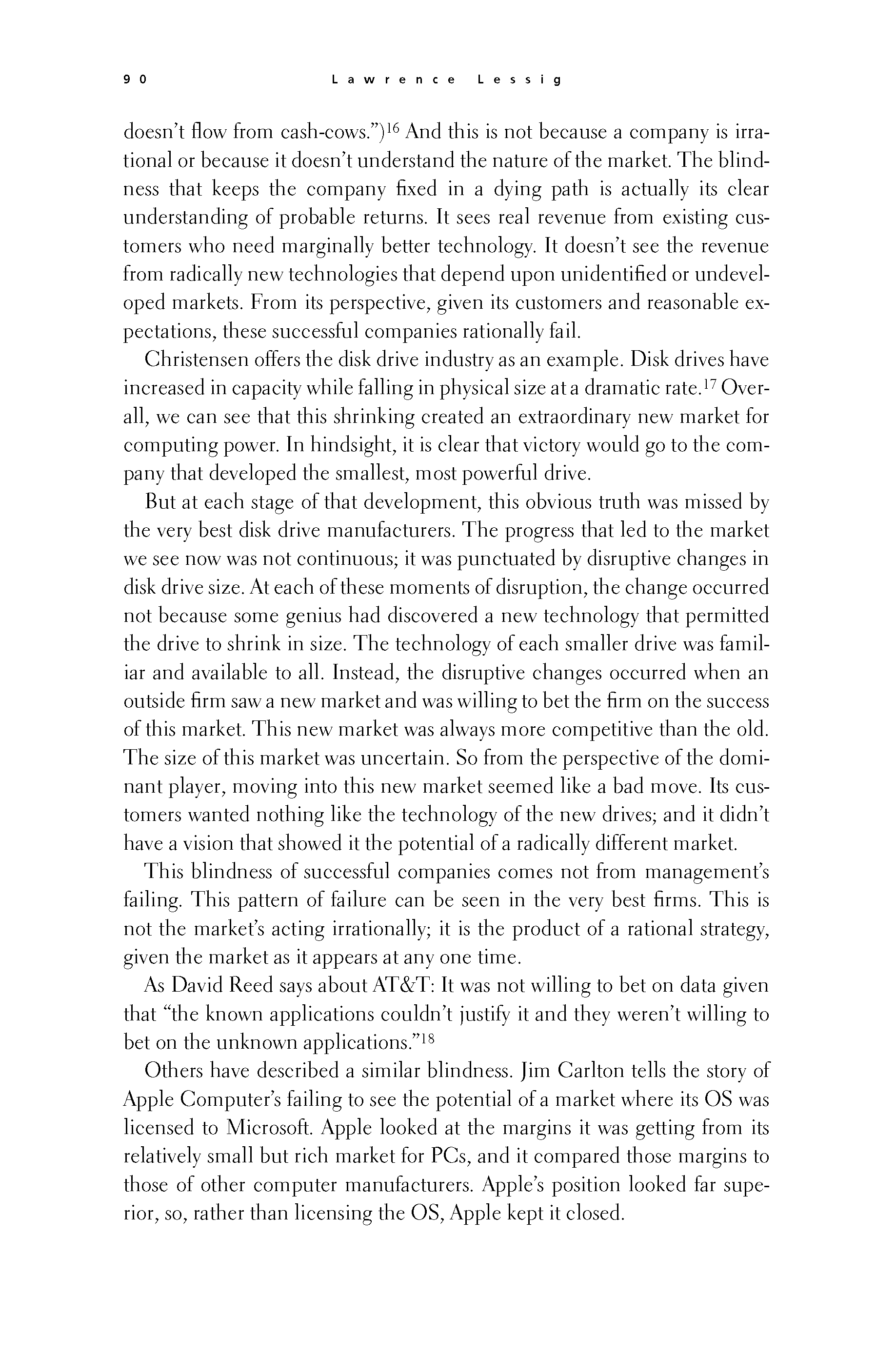 p089 _
-chap- _
toc-1 _
p090w _
toc-2 _
+chap+ _
p091
p089 _
-chap- _
toc-1 _
p090w _
toc-2 _
+chap+ _
p091
doesn't flow from cash-cows.")[6-16] And this is not because a company is irra-
tional or because it doesn't understand the nature of the market. The blind-
ness that keeps the company fixed in a dying path is actually its clear
understanding of probable returns. It sees real revenue from existing cus-
tomers who need marginally better technology. It doesn't see the revenue
from radically new technologies that depend upon unidentified or undevel-
oped markets. From its perspective, given its customers and reasonable ex-
pectations, these successful companies rationally fail.
Christensen offers the disk drive industry as an example. Disk drives have
increased in capacity while falling in physical size at a dramatic rate.[6-17] Over-
all, we can see that this shrinking created an extraordinary new market for
computing power. In hindsight, it is clear that victory would go to the com-
pany that developed the smallest, most powerful drive.
But at each stage of that development, this obvious truth was missed by
the very best disk drive manufacturers. The progress that led to the market
we see now was not continuous; it was punctuated by disruptive changes in
disk drive size. At each of these moments of disruption, the change occurred
not because some genius had discovered a new technology that permitted
the drive to shrink in size. The technology of each smaller drive was famil-
iar and available to all. Instead, the disruptive changes occurred when an
outside firm saw a new market and was willing to bet the firm on the success
of this market. This new market was always more competitive than the old.
The size of this market was uncertain. So from the perspective of the domi-
nant player, moving into this new market seemed like a bad move. Its cus-
tomers wanted nothing like the technology of the new drives; and it didn't
have a vision that showed it the potential of a radically different market.
This blindness of successful companies comes not from management's
failing. This pattern of failure can be seen in the very best firms. This is
not the market's acting irrationally; it is the product of a rational strategy,
given the market as it appears at any one time.
As David Reed says about AT&T: It was not willing to bet on data given
that "the known applications couldn't justify it and they weren't willing to
bet on the unknown applications."[6-18]
Others have described a similar blindness. Jim Carlton tells the story of
Apple Computer's failing to see the potential of a market where its OS was
licensed to Microsoft. Apple looked at the margins it was getting from its
relatively small but rich market for PCs, and it compared those margins to
those of other computer manufacturers. Apple's position looked far supe-
rior, so, rather than licensing the OS, Apple kept it closed.
[[90]]
p089 _
-chap- _
toc-1 _
p090w _
toc-2 _
+chap+ _
p091